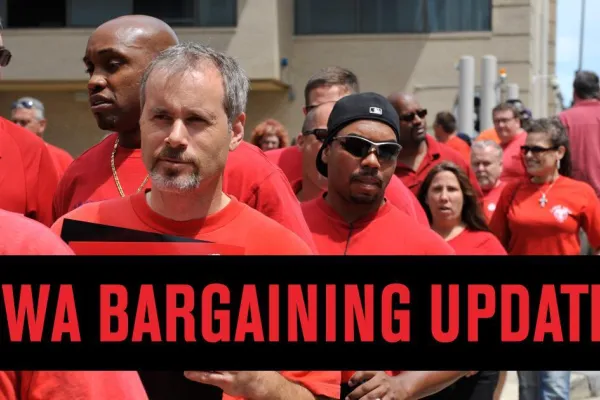This week in Labor History - February 11
Five hundred Japanese and 200 Mexican laborers unite to fight the labor contractor responsible for hiring at the American Beet Sugar Co. in Oxnard, Calif. They ultimately win higher wages and the right to shop at stores not owned by the company - 1903

Mary Harris “Mother” Jones is arrested while leading a protest of conditions in West Virginia mines. She was 83 years old at the time - 1913
Fifteen thousand rubber workers strike in Akron, Ohio, protesting speed-up - 1913
The Seattle General Strike ends after six days. Some 65,000 workers struck for higher pay after two years of World War I wage controls - 1919
“White Shirt Day” at UAW-represented GM plants. Union members are encouraged to wear white shirts, marking the anniversary of the 1936-1937 Flint sit-down strike that gave the union bargaining rights at the automaker. The mission: send a message that “blue collar” workers deserve the same respect as their management counterparts. One of the day’s traditional rules: Don’t get your shirt any dirtier than the boss gets his. The 44-day strike was won in 1937 but the tradition didn’t begin until 1948, at the suggestion of Local 598 member Bert Christenson - 1948

Some 1,300 sanitation workers begin what is to become a 64-day strike in Memphis, ultimately winning union recognition and wage increases. The April 4 assassination in Memphis of Martin Luther King Jr., who had been taking an active role in mass meetings and street actions, brought pressure on the city to settle the strike - 1968
(People forget that Dr. King was every bit as committed to economic justice as he was to ending racial segregation. He fought throughout his life to connect the labor and civil rights movements, envisioning them as twin pillars for social reform. All Labor Has Dignity is a collection of King's speeches on labor rights and economic justice that underscore his relevance for today. They help us imagine King anew: as a human rights leader whose commitment to unions and an end to poverty was a crucial part of his civil rights agenda.)
Wisconsin Gov. Scott Walker announces he will call out the National Guard, if necessary, to deal with any "unrest" among state employees in the wake of his decision to unilaterally end nearly all collective bargaining rights for the workers - 2011
Communications Workers of America, District 4 Reaches a Tentative Agreement with AT&T Midwest, LLC.
CWA Legacy T Members Reach Early Tentative Agreement With AT&T
CWA Broadband Technicians Close Pay Gap With New Contract
